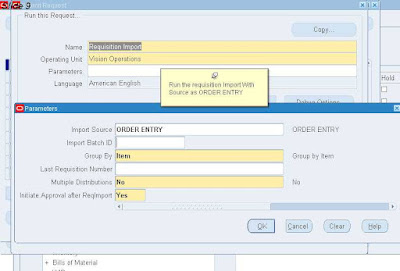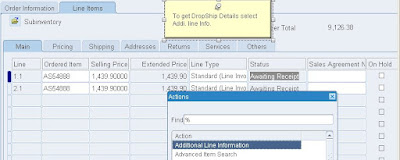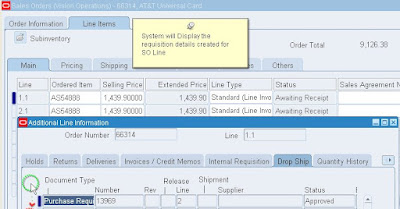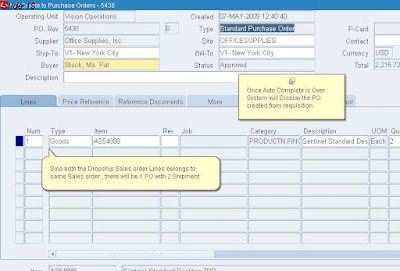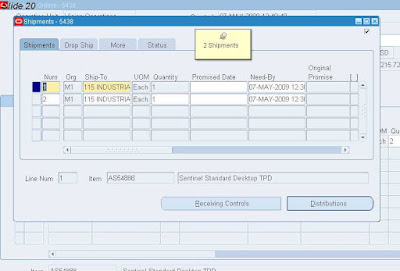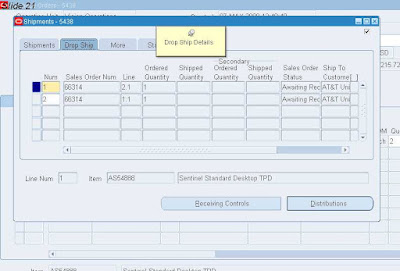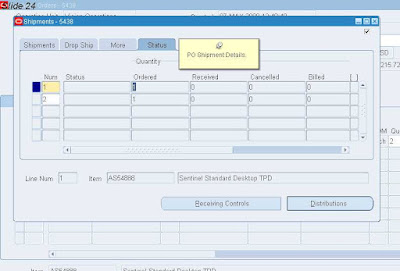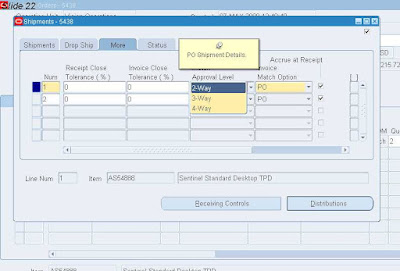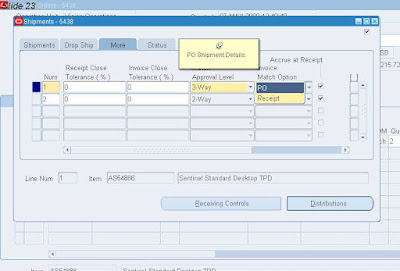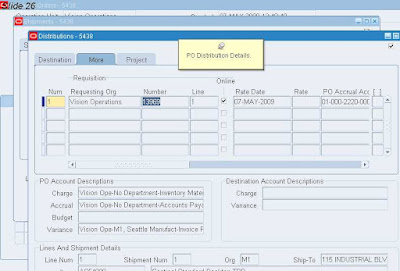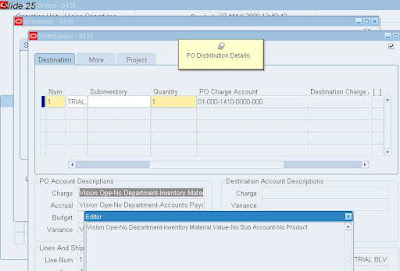In this section we will discuss about the following,
• The Error number must be between -20000 and -20999
• The Error_message is the message you want to display when the error occurs.
1) What is Exception Handling.
2) Structure of Exception Handling.
3) Types of Exception Handling.
2) Structure of Exception Handling.
3) Types of Exception Handling.
1) What is Exception Handling?
PL/SQL provides a feature to handle the Exceptions which occur in a PL/SQL Block known as exception Handling. Using Exception Handling we can test the code and avoid it from exiting abruptly. When an exception occurs a messages which explains its cause is recieved.
PL/SQL Exception message consists of three parts.
1) Type of Exception
2) An Error Code
3) A message
By Handling the exceptions we can ensure a PL/SQL block does not exit abruptly.
PL/SQL Exception message consists of three parts.
1) Type of Exception
2) An Error Code
3) A message
By Handling the exceptions we can ensure a PL/SQL block does not exit abruptly.
2) Structure of Exception Handling.
The General Syntax for coding the exception section
DECLARE
Declaration section
BEGIN
Exception section
EXCEPTION
WHEN ex_name1 THEN
-Error handling statements
WHEN ex_name2 THEN
-Error handling statements
WHEN Others THEN
-Error handling statements
END;
General PL/SQL statments can be used in the Exception Block.
When an exception is raised, Oracle searches for an appropriate exception handler in the exception section. For example in the above example, if the error raised is 'ex_name1 ', then the error is handled according to the statements under it. Since, it is not possible to determine all the possible runtime errors during testing fo the code, the 'WHEN Others' exception is used to manage the exceptions that are not explicitly handled. Only one exception can be raised in a Block and the control does not return to the Execution Section after the error is handled.
If there are nested PL/SQL blocks like this.
DELCARE
Declaration section
BEGIN
DECLARE
Declaration section
BEGIN
Execution section
EXCEPTION
Exception section
END;
EXCEPTION
Exception section
END;
In the above case, if the exception is raised in the inner block it should be handled in the exception block of the inner PL/SQL block else the control moves to the Exception block of the next upper PL/SQL Block. If none of the blocks handle the exception the program ends abruptly with an error.
3) Types of Exception.
There are 3 types of Exceptions.
a) Named System Exceptions
b) Unnamed System Exceptions
c) User-defined Exceptions
a) Named System Exceptions
b) Unnamed System Exceptions
c) User-defined Exceptions
a) Named System Exceptions
System exceptions are automatically raised by Oracle, when a program violates a RDBMS rule. There are some system exceptions which are raised frequently, so they are pre-defined and given a name in Oracle which are known as Named System Exceptions.
For example: NO_DATA_FOUND and ZERO_DIVIDE are called Named System exceptions.
Named system exceptions are:
1) Not Declared explicitly,
2) Raised implicitly when a predefined Oracle error occurs,
3) caught by referencing the standard name within an exception-handling routine.
1) Not Declared explicitly,
2) Raised implicitly when a predefined Oracle error occurs,
3) caught by referencing the standard name within an exception-handling routine.
Exception Name | Reason | Error Number |
CURSOR_ALREADY_OPEN | When you open a cursor that is already open. | ORA-06511 |
INVALID_CURSOR | When you perform an invalid operation on a cursor like closing a cursor, fetch data from a cursor that is not opened. | ORA-01001 |
NO_DATA_FOUND | When a SELECT...INTO clause does not return any row from a table. | ORA-01403 |
TOO_MANY_ROWS | When you SELECT or fetch more than one row into a record or variable. | ORA-01422 |
ZERO_DIVIDE | When you attempt to divide a number by zero. | ORA-01476 |
For Example: Suppose a NO_DATA_FOUND exception is raised in a proc, we can write a code to handle the exception as given below.
BEGIN
Execution section
EXCEPTION
WHEN NO_DATA_FOUND THEN
dbms_output.put_line ('A SELECT...INTO did not return any row.'); END;
b) Unnamed System Exceptions
Those system exception for which oracle does not provide a name is known as unamed system exception. These exception do not occur frequently. These Exceptions have a code and an associated message.
There are two ways to handle unnamed sysyem exceptions:
1. By using the WHEN OTHERS exception handler, or
2. By associating the exception code to a name and using it as a named exception.
1. By using the WHEN OTHERS exception handler, or
2. By associating the exception code to a name and using it as a named exception.
We can assign a name to unnamed system exceptions using a Pragma called EXCEPTION_INIT.
EXCEPTION_INIT will associate a predefined Oracle error number to a programmer_defined exception name.
EXCEPTION_INIT will associate a predefined Oracle error number to a programmer_defined exception name.
Steps to be followed to use unnamed system exceptions are
• They are raised implicitly.
• If they are not handled in WHEN Others they must be handled explicity.
• To handle the exception explicity, they must be declared using Pragma EXCEPTION_INIT as given above and handled referecing the user-defined exception name in the exception section.
• They are raised implicitly.
• If they are not handled in WHEN Others they must be handled explicity.
• To handle the exception explicity, they must be declared using Pragma EXCEPTION_INIT as given above and handled referecing the user-defined exception name in the exception section.
The general syntax to declare unnamed system exception using EXCEPTION_INIT is:
DECLARE
exception_name EXCEPTION;
PRAGMA
EXCEPTION_INIT (exception_name, Err_code);
BEGIN
Execution section
EXCEPTION
WHEN exception_name THEN
handle the exception
END;
For Example: Lets consider the product table and order_items table from sql joins.
Here product_id is a primary key in product table and a foreign key in order_items table.
If we try to delete a product_id from the product table when it has child records in order_id table an exception will be thrown with oracle code number -2292.
We can provide a name to this exception and handle it in the exception section as given below.
If we try to delete a product_id from the product table when it has child records in order_id table an exception will be thrown with oracle code number -2292.
We can provide a name to this exception and handle it in the exception section as given below.
DECLARE
Child_rec_exception EXCEPTION;
PRAGMA
EXCEPTION_INIT (Child_rec_exception, -2292);
BEGIN
Delete FROM product where product_id= 104;
EXCEPTION
WHEN Child_rec_exception
THEN Dbms_output.put_line('Child records are present for this product_id.'); END;
/
c) User-defined Exceptions
Apart from sytem exceptions we can explicity define exceptions based on business rules. These are known as user-defined exceptions.
Steps to be followed to use user-defined exceptions:
• They should be explicitly declared in the declaration section.
• They should be explicitly raised in the Execution Section.
• They should be handled by referencing the user-defined exception name in the exception section.
• They should be explicitly declared in the declaration section.
• They should be explicitly raised in the Execution Section.
• They should be handled by referencing the user-defined exception name in the exception section.
For Example: Lets consider the product table and order_items table from sql joins to explain user-defined exception.
Lets create a business rule that if the total no of units of any particular product sold is more than 20, then it is a huge quantity and a special discount should be provided.
Lets create a business rule that if the total no of units of any particular product sold is more than 20, then it is a huge quantity and a special discount should be provided.
DECLARE
huge_quantity EXCEPTION;
CURSOR product_quantity is
SELECT p.product_name as name, sum(o.total_units) as units
FROM order_tems o, product p
WHERE o.product_id = p.product_id;
quantity order_tems.total_units%type;
up_limit CONSTANT order_tems.total_units%type := 20;
message VARCHAR2(50);
BEGIN
FOR product_rec in product_quantity LOOP
quantity := product_rec.units;
IF quantity > up_limit THEN
message := 'The number of units of product ' || product_rec.name ||
' is more than 20. Special discounts should be provided.
Rest of the records are skipped. '
RAISE huge_quantity;
ELSIF quantity < up_limit THEN
v_message:= 'The number of unit is below the discount limit.';
END IF;
dbms_output.put_line (message);
END LOOP;
EXCEPTION
WHEN huge_quantity THEN
dbms_output.put_line (message);
END;
/
RAISE_APPLICATION_ERROR ( )
RAISE_APPLICATION_ERROR is a built-in procedure in oracle which is used to display the user-defined error messages along with the error number whose range is in between -20000 and -20999.
Whenever a message is displayed using RAISE_APPLICATION_ERROR, all previous transactions which are not committed within the PL/SQL Block are rolled back automatically (i.e. change due to INSERT, UPDATE, or DELETE statements).
RAISE_APPLICATION_ERROR raises an exception but does not handle it.
RAISE_APPLICATION_ERROR is used for the following reasons,
a) to create a unique id for an user-defined exception.
b) to make the user-defined exception look like an Oracle error.
a) to create a unique id for an user-defined exception.
b) to make the user-defined exception look like an Oracle error.
The General Syntax to use this procedure is:
RAISE_APPLICATION_ERROR (error_number, error_message); • The Error number must be between -20000 and -20999
• The Error_message is the message you want to display when the error occurs.
Steps to be folowed to use RAISE_APPLICATION_ERROR procedure:
1. Declare a user-defined exception in the declaration section.
2. Raise the user-defined exception based on a specific business rule in the execution section.
3. Finally, catch the exception and link the exception to a user-defined error number in RAISE_APPLICATION_ERROR.
1. Declare a user-defined exception in the declaration section.
2. Raise the user-defined exception based on a specific business rule in the execution section.
3. Finally, catch the exception and link the exception to a user-defined error number in RAISE_APPLICATION_ERROR.
Using the below example we can display a error message using RAISE_APPLICATION_ERROR.
DECLARE
huge_quantity EXCEPTION;
CURSOR product_quantity is
SELECT p.product_name as name, sum(o.total_units) as units
FROM order_tems o, product p
WHERE o.product_id = p.product_id;
quantity order_tems.total_units%type;
up_limit CONSTANT order_tems.total_units%type := 20;
message VARCHAR2(50);
BEGIN
FOR product_rec in product_quantity LOOP
quantity := product_rec.units;
IF quantity > up_limit THEN
RAISE huge_quantity;
ELSIF quantity < up_limit THEN
v_message:= 'The number of unit is below the discount limit.';
END IF;
Dbms_output.put_line (message);
END LOOP;
EXCEPTION
WHEN huge_quantity THEN
raise_application_error(-2100, 'The number of unit is above the discount limit.');
END;
/


